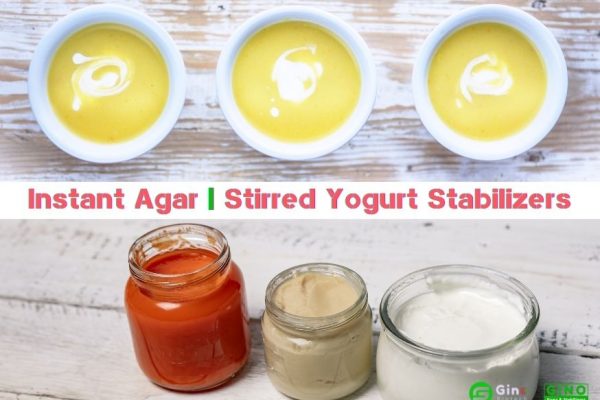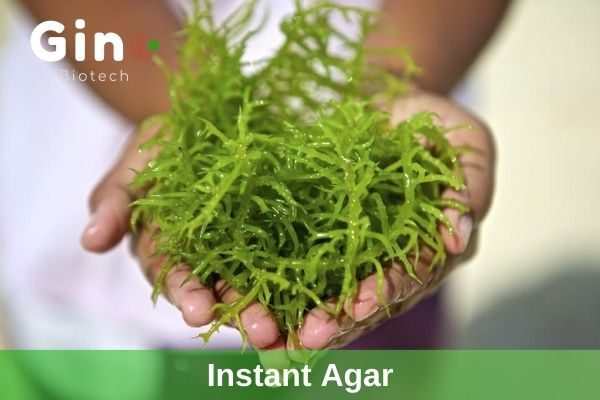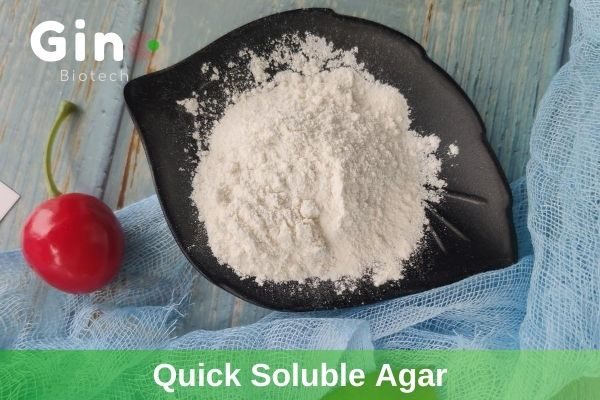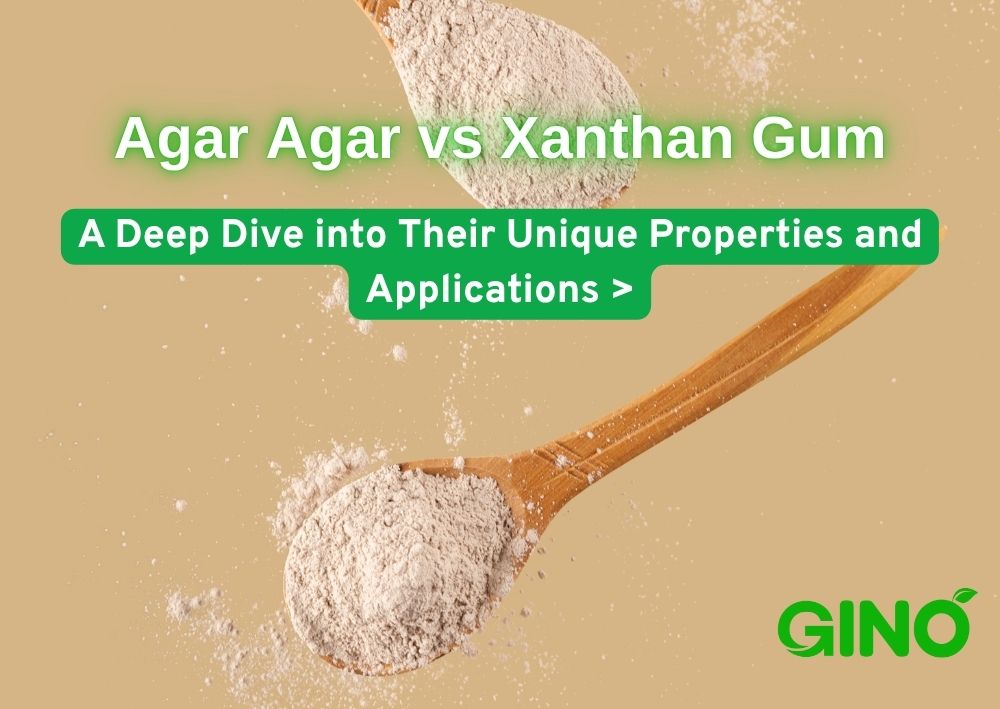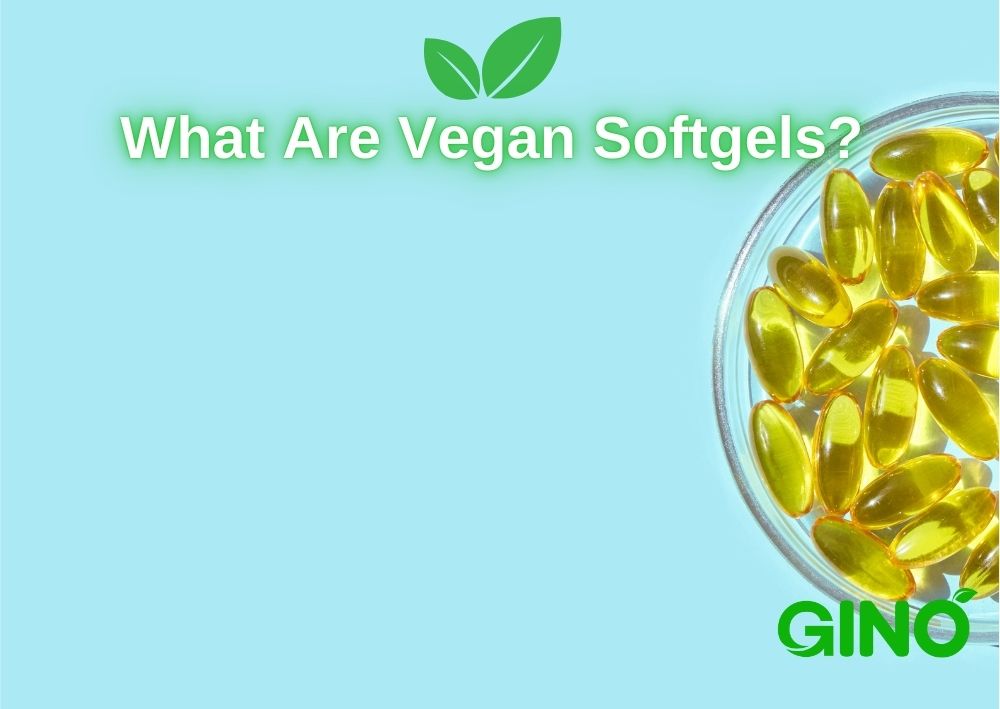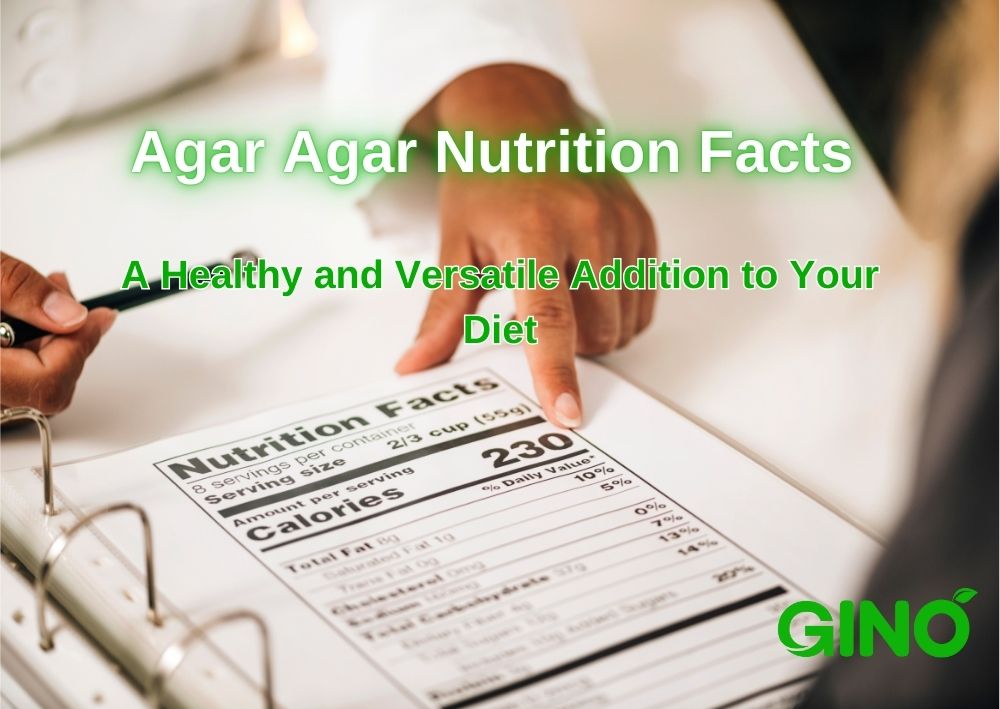For over 10 years, Gino Biotech has been a major supplier of food hydrocolloids. With our variety of plant-based gums & stabilizers, we can create tailor-made hydrocolloid solutions perfectly matched to the needs of our customers. READ MORE
Will Plant-Based Meat Substitutes be as Popular as Meat?
Will Plant-Based Meat Substitutes be as Popular as Meat?
Facebook
Twitter
LinkedIn
By 2023, the European plant-based product market is expected to grow to 18.3 billion euros, which is an excellent opportunity for small and medium-sized enterprises and large companies to engage in plant-based meat. So, will plant-based meat substitutes be as popular as real meat?
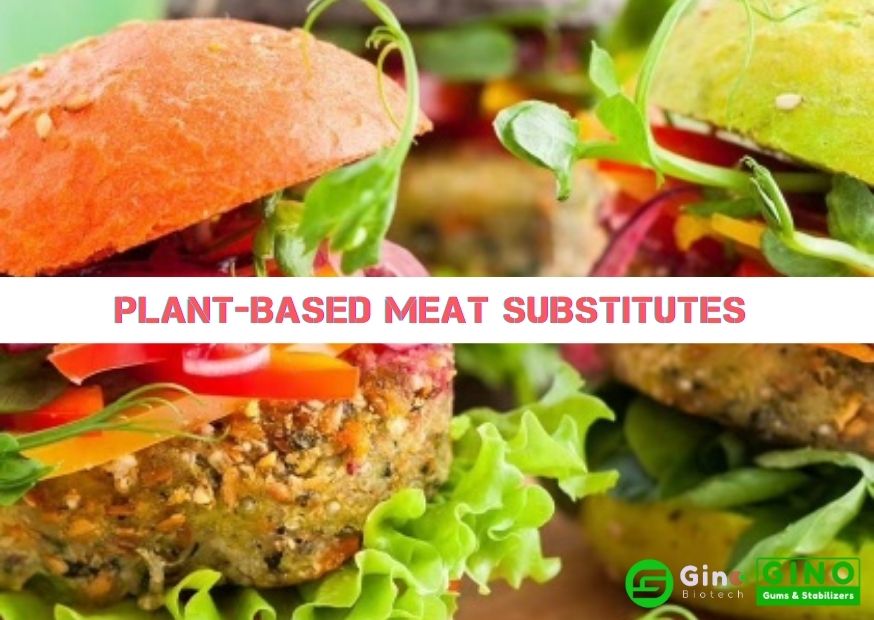
Driving factors for the development of plant-based meat products
Today’s consumers are concerned about global warming, animal welfare and healthy diets. Meat production is the main contributor to greenhouse gases, but the carbon footprint of producing the same amount of isolated soy protein is much lower, so it has proven to be a popular protein source in alternative products.
However, the increase in household income and urbanization have led to continuous growth in the demand for meat and meat products; however, there are many factors that will lead to a more flexible/vegetarian/vegan lifestyle.
In close proximity to each other, changes (such as tail and beak) and slaughter of young animals to ensure flavor and softness are factors that drive dietary changes. Health is also a motivation; although meat is a good source of key nutrients, it has negative health implications for saturated fat and cholesterol content and the link with inflammatory diseases in the minds of consumers.
It is also a driving factor because it can induce tumor development in animal models and the possibility of the formation of reactive oxygen species during processing/cooking.
Sources of protein/ingredients/formulations
The main challenge in the development of vegetable meat products is to achieve protein quality comparable to meat.
Soy is considered a complete protein and organized soy protein. Due to its nutritional value, functional properties and versatility, soy and other extruded products are popular alternatives to plant-based meat;
However, soy is also one of the main food allergens.
If the ingredient contains soy, it must be declared. Pea protein isolate is not on the list of allergens, so it provides an interesting choice. Pea protein has sufficient functional properties, and its oil retention capacity can improve the fragrance and taste of the product.
Gluten is also used to make SEITAN, which has a meat-like texture without a meaty taste. Boiled gluten dough in a delicious solution will impart flavor, resulting in a texture similar to shredded meat. Rice protein isolate is hypoallergenic and can be used alone or in combination with other plant-based proteins.
Other protein sources that may be contained in plant-based meats include algae (for example, Spirulina platensis), peanut protein concentrate, rapeseed meal, quinoa, and protein from excess potatoes. product.

Product | Protein Source | Fat Source |
Meatless Sausage | Soy Protein and Wheat Gluten | Sunflower/Soy/Rapeseed Oil |
Vegetarian Sausage | Textured soy protein | Rapeseed Oil |
Vegetarian Bacon | Vital Wheat Gluten | Sunflower Oil |
Vegetarian Chicken | Pea and Wheat Protein | Rapeseed Oil |
Vegetarian patty burger | Soy and Wheat Protein | Coconut Oil |
Vegetarian Steak | Wheat protein | Coconut Oil |
Spirulina Platensis has a strong antioxidant capacity and high content of essential amino acids, protein and vitamins. It is the most used algae in the food industry
In Ireland, it is estimated that 4.3% of the population are vegetarians and 4.1% of the population are vegans, which encourages meat companies. to produce herbal substitutes for supply.
If we take a certain brand of pork sausage and its herbal similar products (produced by the same company) as an example, there will be significant differences in ingredients, but the latter includes a natural list.
Examples of Pork Sausages and Vegetarian Sausages include:
- Sodium triphosphate (stabilizer and juicy promotion) and methylcellulose (from plants)
- Sodium metabisulfite (preservative) and Spice
- Carmine (insect coloring) and safflower and beet juice (vegetable).
In the examples we have seen, Vegetarian Sausages contain inulin (a dietary fiber from chicory root), which has a positive effect on blood insulin levels, mild taste, fat-like mouthfeel/texture and improve emulsion stability.
The protein sources of these plant-based sausages are textured soy protein and wheat protein.
Produces flavor and texture in plant-based meats.
Sensory acceptance of plant-based meat products by consumers is the top priority. Hydrolyzed vegetable protein (HVP) from soybeans, corn, or wheat is the main protein form in plant-based meats. HPV contains high content of free amino acids and peptides, which can enhance the flavor, thereby improving the perception of product flavor.
Yeast extracts are also used because they contain volatile sulfur-containing compounds that impart a flavor to the meat after heat treatment.
Spices such as red, white and black pepper, mustard, garlic, allspice and cinnamon are widely used in plant-derived meat products to impart a meaty taste due to its nutritional, antioxidant, anti-inflammatory and antibacterial properties.
Divided into those that imitate minced or minced meat products (such as hamburgers) and those that imitate whole muscles. Extrusion is the most common method used to create texture in plant-based meats. The pressure, heat and finally released pressure in the extruder steam the food mixture and produce an expanded product. The dry method or low-moisture extrusion method is used for burger-type vegetable meat products because it produces denser protein particles with a fibrous texture. Then it is molded into hamburgers or sausages.
Whole muscle substitutes are produced by wet or high-moisture extrusion methods, resulting in fibrous plant protein blocks (usually soy) similar to real meat. Soybeans are usually supplemented with other ingredients. , Such as pea protein or gluten, to add additional nutritional and physical properties. For example, gluten condenses to form a tough wet gel after heating, making it an ideal companion ingredient for the production of plant-based chicken and meat.
Softness, color (through Maillard reaction and caramelization), protein availability and protein digestibility of extrudates. Hydrocolloids such as carrageenan derived from red algae can improve the hardness and development of fibers. Other thickeners can also be used, such as tomato pomace, because it contains a high content of pectin, which can improve the toughness/cohesion and water retention of meatless sausages.
Consumer Acceptance
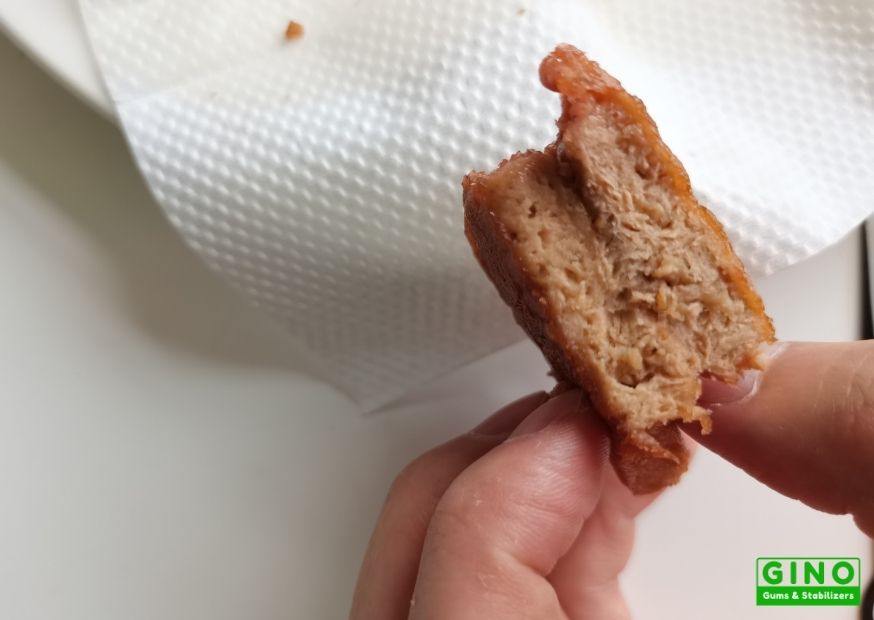
The appearance, taste and texture attributes of plant-based meats are the key to acceptance. Consumers are concerned about the various ingredients/additives that can be found in plant-based meats, but it is worth noting that traditional meat products also include a variety of ingredients and additives.
A recent study on consumer acceptance of plant-based meat products based on packaging information showed that including two pieces of environmental information on the front of the package can improve the image/acceptance of the product.
However, the meat counterpart that inhibits absorption, the increased cost of real meat may make up for the difference. Since this is a new field, research on the safety of plant-based meat products is limited, but the ingredients/additives used are ‘Generally Recognized as Safe’ (GRAS status). In addition, the shelf life of plant-based meats is usually longer than that of meat products because the ingredients tend to be less sensitive to microorganisms.
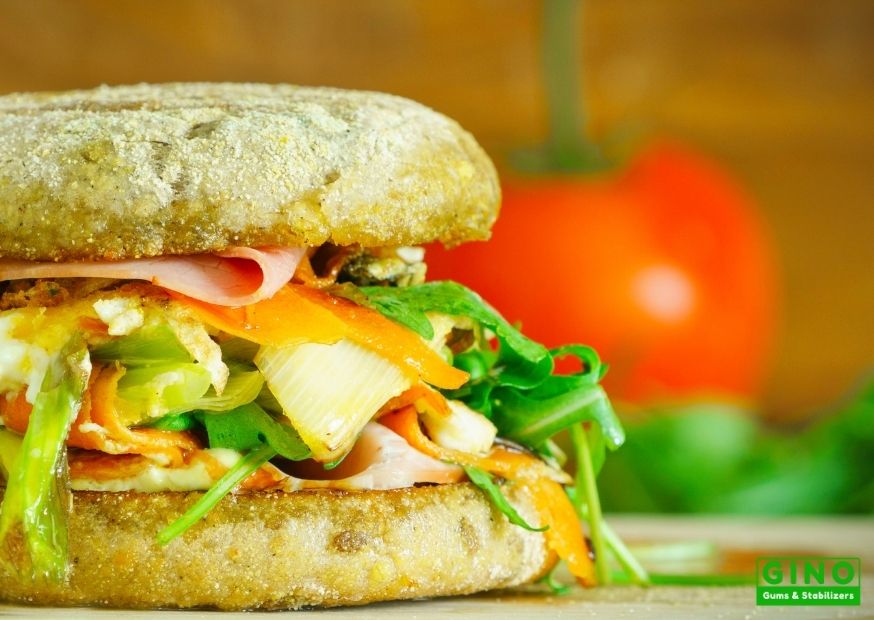
Although plant-based meats will gain a growing market share (at least in the medium term), beef, pork, lamb and chicken will continue to occupy a central position in terms of taste, texture and natural perception.
Related Articles
Recent Posts
About Gino Biotech

We are a biotech company specialized in the research, development and commercialization of innovative and technological food additives hydrocolloids Agar Agar, Carrageenan and Tailor-Made Stabilizer Solutions.
With the extended know-how and experience in the research, application and use of Hydrocolloids, we could provide one-stop-shop customized solutions perfectly matched to the needs of our customers.
Our products cover the needs of the Meat, Dairy, Bakery, Confectionery and other industrial sectors.


